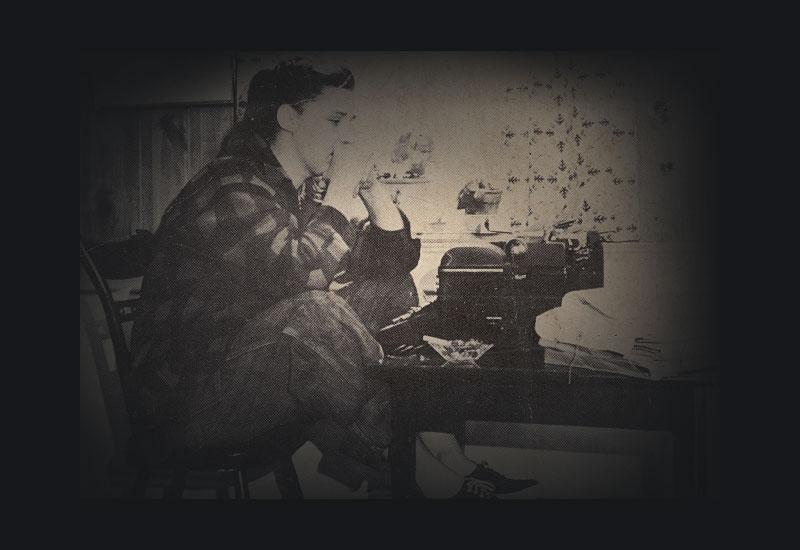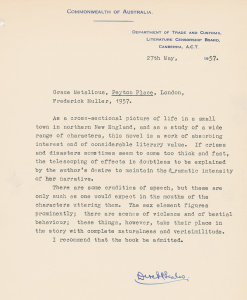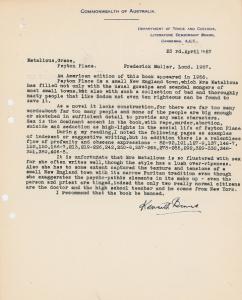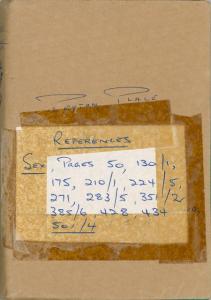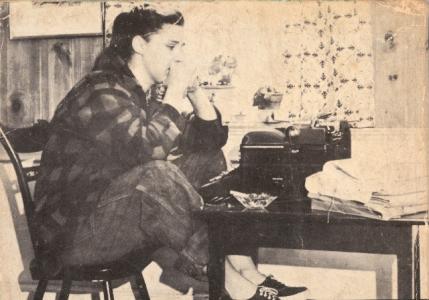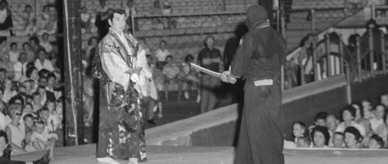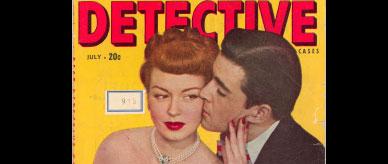In September 1956 Peyton Place burst onto the American scene as the country's most controversial novel. Published at a time when small towns were seen as America's moral compass, the 'explosive best seller' exposed the seamy side of northern New England town life with its exploration of illicit sex, abortion, incest and murder. Author Grace Metalious, a young housewife who based the novel on several towns she had known, was dismissed by critics for producing 'literary sewage' and shunned by her town folk for writing so frankly on taboo subjects.
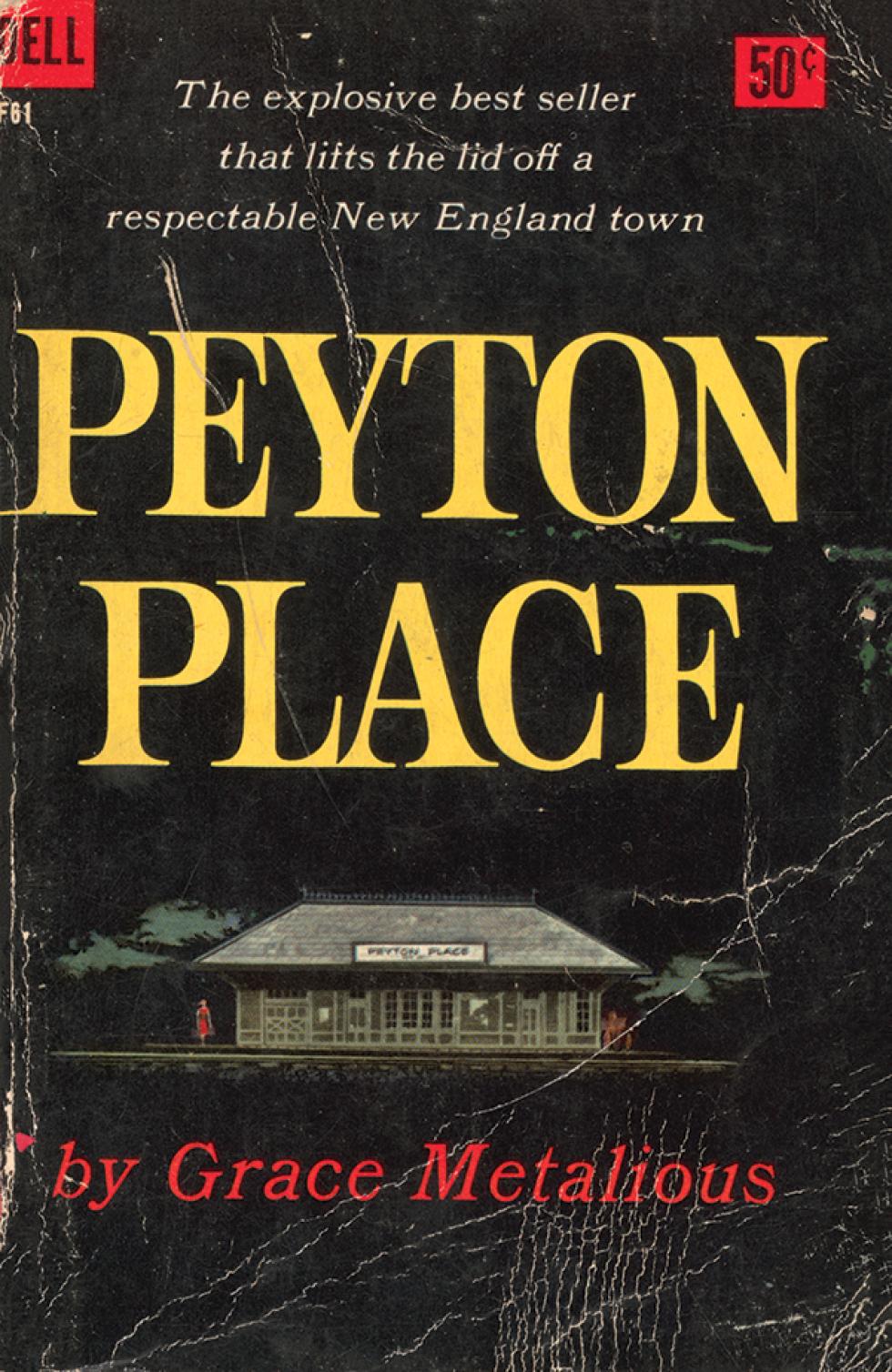
Cover of Peyton Place, 1957 paperback edition published by Dell. NAA: C3059, Peyton Place 2
In May 1957 the Literature Censorship Board recommended the release of an expurgated edition of Peyton Place, published by London firm Frederick Muller earlier that year. During the 1950s it was common for British publishers to pre-censor American novels in an effort to avoid Australian censorship. Known as 'Australian Editions', expurgated copies were released quickly and frequently arrived on Australian shores before the original editions.
With many of the offending passages removed, the Board argued that the scenes of sex, violence and 'bestial behaviour' in Peyton Place had a credible place in the story. Derek Scales, who was appointed to the Board in 1954, described the novel as 'a work of absorbing interest and of considerable literary value'. 'There are some crudities of speech', he added, 'but these are only such as one would expect from the characters uttering them'.
Chairman LH Allen agreed, providing a favourable two-page review of Metalious's genuine portrayal of life in a 'narrow and isolated' town. 'There are, of course, exposures of cupboard skeletons which are bound to exist in any community, but there is sincerity in the closing words of the tale which represent life, despite its sins and errors, as fine and splendid.' Allen concluded that 'the book is not pernicious, and, if read in the proper light, is instructive'.
One of the book's ugliest situations is the raping of 16-year-old Selena Cross by Lucas Cross, her drunkard step-father. Allen felt that the town's physician, Dr Swain, who performs an illegal abortion out of sympathy for Selena and then risks his professional reputation by revealing the truth after she is accused of murdering Lucas, 'commands admiration'. As does Selena, who is 'prepared to hang rather than betray the doctor's secret'.
The Board's decision to release Peyton Place was not unanimous. A dissenting view came from Deputy Chairman Kenneth Binns who felt the novel's 'profanity and obscene expressions' were excessive. 'It is unfortunate that Mrs Metalious is so flustered with sex', he wrote, 'for she often writes well'.
Comptroller General FA Meere also disagreed with the majority opinion and in May 1957 wrote to Customs Minister Denham Henty requesting that he overrule the Board's recommendation. Meere argued that the Board placed too much importance on the book's literary merit. 'I feel that the question of prohibition must be determined on a judgment as to whether the book is indecent or whether it unduly emphasises sex, irrespective of whether the book is well or badly written.'
In the end, Henty upheld the Board's decision. However, six months later, on 6 December 1957, the original Dell edition of Peyton Place was placed on the banned list, remaining there until 11 February 1971. It was the book's sexual passages, rather than its handling of taboo subjects, that concerned the censors.
Peyton Place became one of the most widely read novels ever published in the United States. More than 12 million copies in paperback were sold, and it sat on The New York Times bestseller list for 59 weeks. In 1958 it surpassed Gone with the Wind to become the top-selling novel of all time, a position it held for nearly 20 years.
By the time the novel came to the attention of the Australian censors in 1957, it was being adapted for the silver screen. This was followed by a sequel to the novel (1959), a sequel to the film (1961) and a long-running television series (1964–69). Such was the immense popularity of Peyton Place that its title became shorthand for any small town accused of harbouring a scandal.
The legacy of Peyton Place in popular culture far exceeded the tumultuous and short life of its author. Grace Metalious, who struggled with her new-found notoriety, died in 1964 of cirrhosis, at age 39.

